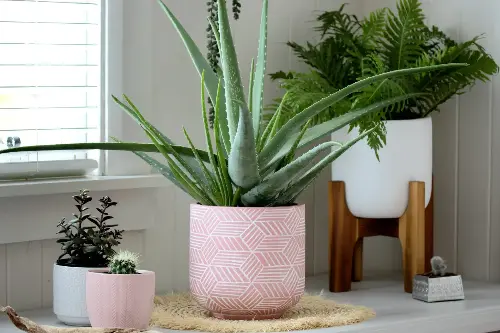
Feeling a bit attached to your house plants? If so, you're certainly not alone.
People are said to commonly have an "engaged relationship" with their indoor plants, and "not all indoor plant-people relationships are equal," new research has shown.
Scientists have found that plant owners have one of four types of relationships with their indoor plants. They include "highly connected, engaged, limited engagement, and no relationship," the researchers explained in a recent study published in Plant-Environment Interactions.
The study, which surveyed 115 indoor plant owners in Australia in 2020, observed the perceived benefits of owning indoor plants and how plant owners describe their relationships with them.
Researchers found that "people exhibit varying levels of connection and engagement with their plants" and their findings "provides preliminary evidence that individuals are aware of many of the benefits of indoor plants and that not all indoor plant-person relationships are the same."
Most commonly (42 percent), people were found to have an engaged relationship with their indoor plants, while just under one-quarter (23 percent) have a limited engagement relationship. Fourteen percent reported having a highly connected relationship, while 12 percent said they had no relationship with their indoor plants, the study found.
Those surveyed reported a total of 11 benefits of having indoor plants, which were named by 10 percent or more of the study's participants. The most common benefits observed included decorative and aesthetic value, improved air quality and calming effects.
Just over half of the people surveyed (51 percent) described the decorative and/or aesthetic benefits of indoor plants, including that the "plants are nice to look at," "soften rooms," "add color to rooms" and "make the spaces look nice."
Benefits to air quality were also highlighted by 31 percent of people, who noted that their indoor plants "purify the air," "produce oxygen" and "make the air feel better."
Less than one-quarter (22 percent) said that their indoor plants were calming, noting that they "reduced stress" and "relaxed their mind."
The five benefits described by fewer than 10 percent of those surveyed were that "plants help them set habits, physical health benefits, provide distraction, relieve fatigue, and pleasant smell," the scientists said.
Given the data for the study was collected in a year when many were coping with the impact of the COVID-19 outbreak, "the context of the pandemic may have influenced participants' relationships with indoor plants or their perceptions of the benefits these plants offer," the researchers noted.
The study also found a large range in the number of indoor plants owned by those surveyed, from one plant to more than 500, with participants reported to own 15 indoor plants, on average.
A total of 51 varieties of indoor plants were owned by the study's participants, with the most common varieties being succulents (32 percent), Epipremnum aureum, which is commonly known as Devil's Ivy or Golden Pothos (24 percent), and monstera (20 percent).
People were most commonly (75 percent) found to keep their indoor plants in the living room, followed by the kitchen (54 percent) and bedroom (50 percent).
"Continued research into the human-nature relationship is essential in unlocking the full potential of nature to enhance human health and well-being, while also exploring how humans can contribute to the health and wellbeing of nature," the scientists concluded.
Do you have a tip on a science story that Newsweek should be covering? Do you have a question about plants? Let us know via [email protected].
